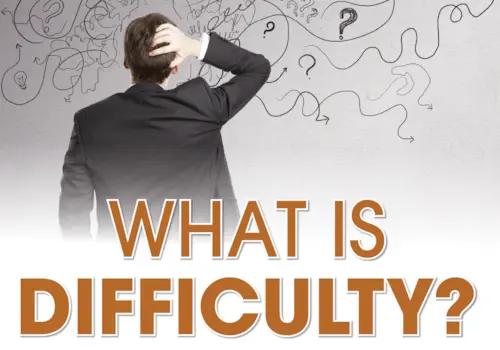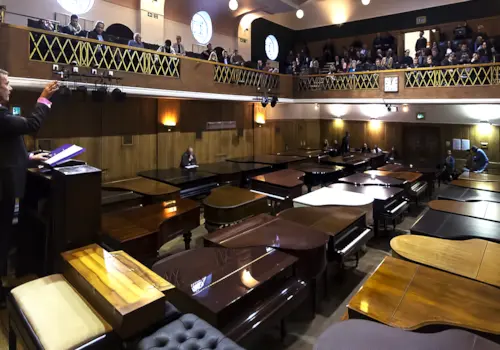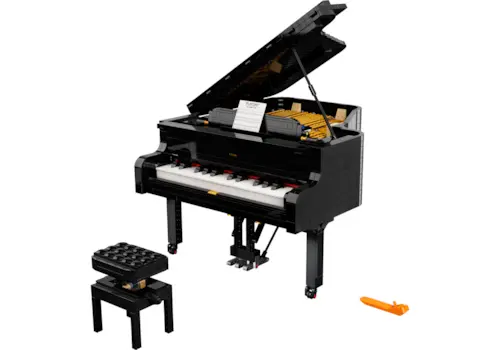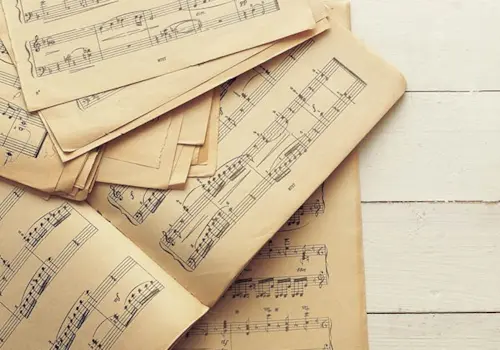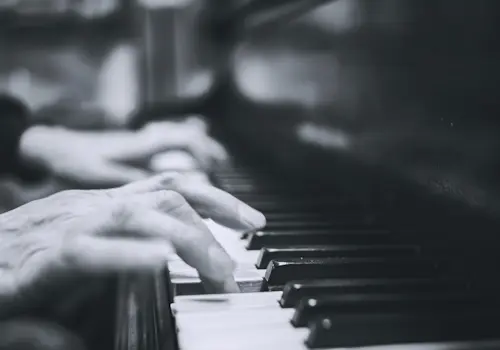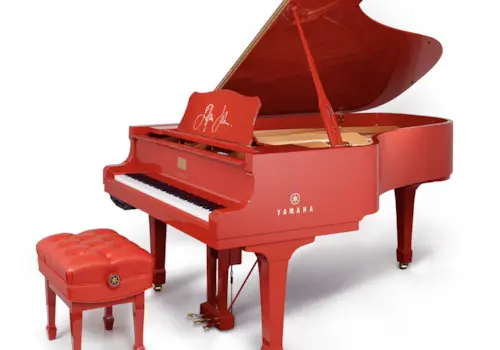Musician and piano teacher Doug Hanvey shares some vital insight for adult piano students
On my lifelong journey as a musician and piano teacher, I picked up a Master's degree in Adult Education. I love kids but would rather teach adults, which may have something to do with unique characteristics of adult learners I strongly resonate with:
- Adult learners are goal-oriented
- Adult learners are self-directed
- Adult learners seek creative self-expression
Adults preparing to study piano as a beginner or returnee will greatly benefit by reflecting on these characteristics in themselves and communicating them to their current (or a prospective) teacher.
The resources within each issue of Pianist are ideal for adult piano learners. Whether you are a beginner, an intermediate or an advanced player, you will find something inside the pages of Pianist to help you improve your piano-playing skills. Try out a sample issue here.
Goal orientation

Unlike children, adults usually have identifiable learning goals. When it comes to studying piano, goals may range from broadly general ("learn chords") to highly-specific ("play the Moonlight Sonata").
But we adults have been conditioned by past educational experiences that told us what the goals were and how we were to go about achieving them. So, it may take a conscious effort to clearly articulate what our goals are. Some questions that may help:
- What is my overarching goal for studying piano? Why am I doing this?
- What musical styles do I want to play?
- What are my specific goals? For example: learn to read music, play by ear, learn chords, accompany myself singing, improve my keyboard technique.
- What are my big musical dreams? For example: perform for others, play with other musicians, record an album.
Self-direction

One of the most salient characteristics distinguishing adult learners from children is their need for "self-direction." Self-direction means that adults prefer to identify their own learning goals, needs and resources, and to self-evaluate the effectiveness of their learning.
In practical terms, this means that adults prefer to view teachers as facilitators rather than managers.
However, as with goal-setting, adults have been habituated to minimise their needs for self-direction. Especially when working with teachers who mostly teach children (as so many do), adult piano students may yield to the external structure and objectives provided by the teacher instead of articulating and advocating for their unique learning needs.
Adult pianists will benefit by clearly communicating their needs for self-direction to current or prospective teachers. If it is not clear that a teacher can meet those needs, keep looking.
Take advantage of our online piano lessons, which are completely free. We have a selection of beginner, intermediate, advanced and jazz lessons available for you to enjoy.
Creativity

Adult learners lean towards learning experiences that provide opportunities for creative self-expression. Creativity is a form of "adult play" that is not only enjoyable and motivating, but that also improves learning outcomes. For example, learning to improvise to a steady beat supports improvements in both ear and rhythm skills.
While simply interpreting a piece of music entails creative decision-making, many adults are interested in even more profound musical activities such as improvising or composing. The downside is that traditional music education still does not emphasise creativity enough (though this is gradually changing).
We asked a number of top professionals for their advice on composing music for the piano.
Many piano teachers would be at pains to help an adult student acquire even the most rudimentary improvising or composing skills. Nonetheless, adults who are particularly motivated to be musically creative shouldn't assume that creatively-oriented teachers don't exist. They may be harder to find – but they are out there!
All in all, adult piano students can benefit by clearly formulating their goals and articulating their needs for self-directed learning and creative self-expression. Communicating these clearly and confidently to teachers will enrich their learning and optimise their chances of acquiring a first-rate musical education.
Find out more about Doug Hanvey here.

